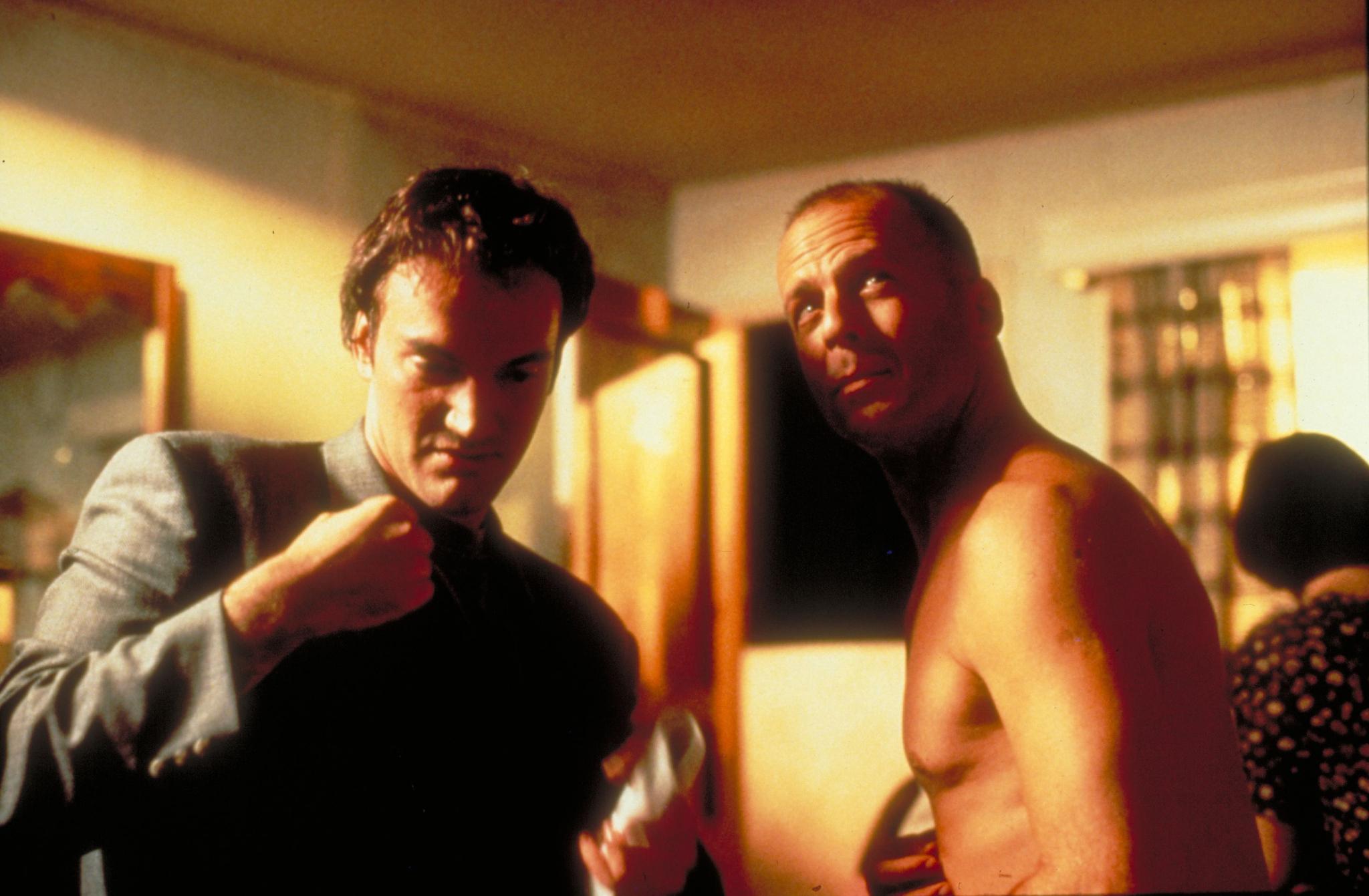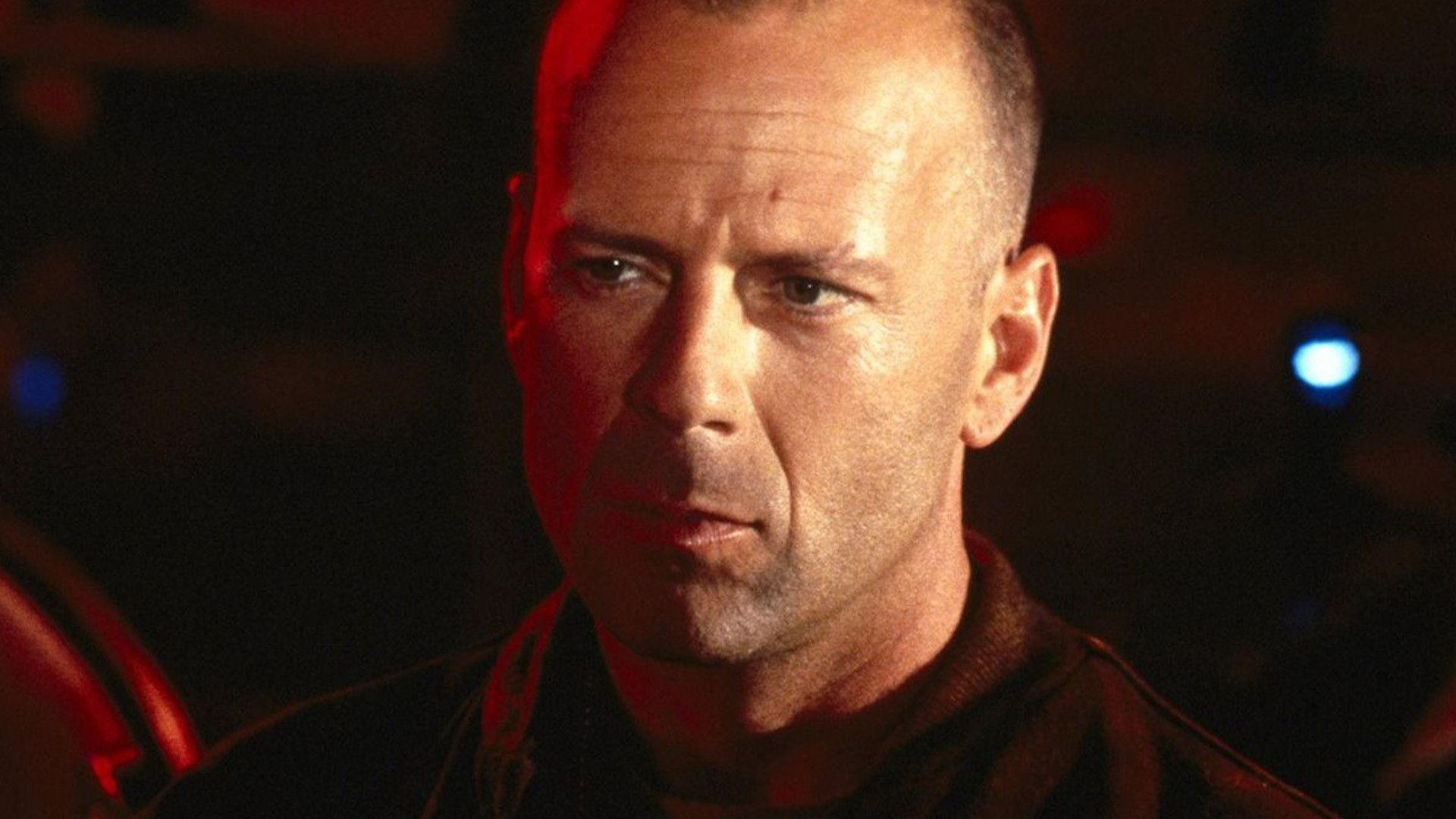Table of Contents
- Introduction
- Biography of Bruce Willis
- Bruce Willis' Age During Pulp Fiction
- The Role of Butch Coolidge
- Pulp Fiction and Its Cultural Impact
- Bruce Willis' Career Before Pulp Fiction
- Bruce Willis' Career After Pulp Fiction
- Why Pulp Fiction is a Landmark Film
- Bruce Willis' Contribution to the Action Genre
- The Legacy of Pulp Fiction and Bruce Willis
- Conclusion
Bruce Willis is a name that resonates with action-packed blockbusters and iconic performances, but one of his most memorable roles came in Quentin Tarantino's Pulp Fiction. In this article, we will explore Bruce Willis' age during the filming of Pulp Fiction, his role as Butch Coolidge, and how this film shaped his career and legacy. Pulp Fiction, released in 1994, is widely regarded as one of the most influential films in cinematic history. Bruce Willis' performance in the movie not only showcased his versatility as an actor but also solidified his status as a Hollywood icon. Understanding his age during this pivotal moment in his career provides deeper insight into his journey as an actor and the cultural impact of the film.
Pulp Fiction wasn't just another movie for Bruce Willis; it was a turning point. At the time, Willis was already a household name thanks to his role in the Die Hard franchise. However, Pulp Fiction allowed him to step out of the action-hero mold and prove his ability to deliver nuanced, character-driven performances. This article will delve into the details of his role, his age during the film's production, and how it influenced his career trajectory.
Read also:Cathy Koreana White Autopsy Unveiling The Facts And Insights
By the end of this article, you will have a comprehensive understanding of Bruce Willis' role in Pulp Fiction, his age during the film's production, and why this movie remains a cultural touchstone. Whether you're a fan of Bruce Willis, Quentin Tarantino, or cinema in general, this article aims to provide valuable insights into one of the most iconic collaborations in film history.
Biography of Bruce Willis
Bruce Willis was born on March 19, 1955, in Idar-Oberstein, West Germany, to an American father and a German mother. He moved to the United States at a young age and grew up in Penns Grove, New Jersey. Willis began his acting career on stage, performing in various Off-Broadway productions before transitioning to television and film.
His breakthrough role came in the 1980s with the hit TV series Moonlighting, where he starred alongside Cybill Shepherd. The show's success catapulted him to fame and paved the way for his film career. In 1988, Willis landed the role of John McClane in Die Hard, a film that would define his career and establish him as an action hero.
| Full Name | Walter Bruce Willis |
|---|---|
| Date of Birth | March 19, 1955 |
| Place of Birth | Idar-Oberstein, West Germany |
| Notable Films | Die Hard, Pulp Fiction, The Sixth Sense, Armageddon |
| Awards | Emmy Award, Golden Globe Award |
Bruce Willis' Age During Pulp Fiction
Bruce Willis was 38 years old during the filming of Pulp Fiction, which took place in 1993. The film was released in 1994, making Willis 39 at the time of its premiere. His age played a significant role in shaping his portrayal of Butch Coolidge, a character who exudes a mix of grit, determination, and moral ambiguity.
At 38, Willis was at a pivotal point in his career. He had already achieved massive success with the Die Hard franchise, but Pulp Fiction offered him the opportunity to showcase a different side of his acting abilities. His age allowed him to bring a sense of maturity and depth to the role, qualities that resonated with audiences and critics alike.
Willis' age also aligned perfectly with the character of Butch Coolidge. The role required an actor who could convey both physicality and emotional complexity, and Willis' experience and maturity made him an ideal choice. His performance in Pulp Fiction demonstrated that he was more than just an action star; he was a versatile actor capable of taking on challenging roles.
Read also:What Is Pat Mcafees Background Discover The Journey Of A Multifaceted Personality
The Role of Butch Coolidge
Butch Coolidge, played by Bruce Willis, is one of the central characters in Pulp Fiction. A professional boxer, Butch is caught in a moral dilemma when he is ordered to throw a fight but decides to betray his agreement. This decision sets off a chain of events that drives much of the film's plot.
Willis' portrayal of Butch is both compelling and layered. He brings a sense of vulnerability and humanity to the character, making him relatable despite his morally questionable actions. One of the most memorable scenes in the film is when Butch returns to his apartment to retrieve a cherished family heirloom, a gold watch, despite the danger it poses to his life.
Key Traits of Butch Coolidge
- Moral Ambiguity: Butch's decision to double-cross Marsellus Wallace highlights his complex moral compass.
- Loyalty: Despite his betrayal, Butch shows loyalty to his family and his principles, as seen in his actions to save Marsellus from a dangerous situation.
- Resilience: Willis' performance captures Butch's determination to survive and protect what matters to him.
Pulp Fiction and Its Cultural Impact
Pulp Fiction is widely regarded as a groundbreaking film that revolutionized the way stories are told in cinema. Directed by Quentin Tarantino, the film's nonlinear narrative, sharp dialogue, and eclectic soundtrack set it apart from other films of its time. It received widespread critical acclaim and won the Palme d'Or at the 1994 Cannes Film Festival.
The film's cultural impact extends beyond its storytelling techniques. It introduced audiences to a new style of filmmaking that blended genres, challenged conventions, and celebrated pop culture. Pulp Fiction's influence can be seen in countless films and TV shows that followed, making it a landmark in cinematic history.
Why Pulp Fiction Resonated with Audiences
- Iconic Dialogue: Lines like "Say 'what' again" and "Zed's dead, baby" became part of popular culture.
- Memorable Characters: Characters like Butch Coolidge, Vincent Vega, and Jules Winnfield left a lasting impression.
- Innovative Storytelling: The film's nonlinear structure challenged traditional narrative formats.
Bruce Willis' Career Before Pulp Fiction
Before Pulp Fiction, Bruce Willis was primarily known for his role as John McClane in the Die Hard franchise. The first Die Hard film, released in 1988, was a massive success and established Willis as an action hero. He reprised the role in several sequels, further cementing his status in the genre.
In addition to Die Hard, Willis starred in a variety of films throughout the late 1980s and early 1990s. Some of his notable works include Hudson Hawk (1991), Death Becomes Her (1992), and The Last Boy Scout (1991). While these films showcased his range as an actor, they did not achieve the same level of critical acclaim as Pulp Fiction.
Pulp Fiction marked a turning point in Willis' career by proving his ability to take on complex, character-driven roles. It demonstrated that he was not confined to the action genre and could hold his own alongside other acclaimed actors in an ensemble cast.
Bruce Willis' Career After Pulp Fiction
Following the success of Pulp Fiction, Bruce Willis continued to build on his reputation as a versatile actor. He starred in a wide range of films, from action blockbusters to dramatic roles, showcasing his ability to adapt to different genres and characters.
Some of his notable post-Pulp Fiction films include The Fifth Element (1997), Armageddon (1998), and The Sixth Sense (1999). The Sixth Sense, in particular, earned Willis critical acclaim and an Academy Award nomination for Best Supporting Actor. The film's success further solidified his status as a Hollywood legend.
Key Films in Willis' Post-Pulp Fiction Career
- The Fifth Element: A sci-fi classic that showcased Willis' ability to lead a visually stunning film.
- Armageddon: A disaster film that became one of the highest-grossing movies of 1998.
- The Sixth Sense: A psychological thriller that earned Willis widespread recognition for his nuanced performance.
Why Pulp Fiction is a Landmark Film
Pulp Fiction's status as a landmark film can be attributed to several factors, including its innovative storytelling, memorable characters, and cultural impact. The film's nonlinear narrative challenged traditional storytelling conventions and inspired a new generation of filmmakers.
Quentin Tarantino's direction and screenplay played a crucial role in the film's success. His sharp dialogue, attention to detail, and ability to blend genres created a unique cinematic experience that resonated with audiences worldwide. The film's eclectic soundtrack, featuring songs like "Misirlou" and "You Never Can Tell," further enhanced its appeal.
Legacy of Pulp Fiction
- Influence on Filmmakers: Directors like Christopher Nolan and Edgar Wright have cited Pulp Fiction as a major influence on their work.
- Cultural References: The film's quotes, scenes, and characters have become ingrained in popular culture.
- Critical Acclaim: Pulp Fiction is consistently ranked among the greatest films of all time by critics and audiences alike.
Bruce Willis' Contribution to the Action Genre
Bruce Willis' impact on the action genre cannot be overstated. His role as John McClane in Die Hard redefined the archetype of the action hero, introducing a more relatable and flawed protagonist. Unlike the larger-than-life heroes of the 1980s, McClane was an everyman who relied on wit and resilience rather than brute strength.
Willis' success in Die Hard paved the way for a new wave of action films that focused on character development and realism. His performances in films like The Fifth Element and Armageddon further demonstrated his ability to blend action with humor and heart, making him a standout figure in the genre.
Why Bruce Willis Stands Out
- Relatable Heroes: Willis' characters often embody the struggles and triumphs of ordinary people.
- Versatility: His ability to transition between action, drama, and comedy highlights his range as an actor.
- Iconic Performances: Films like Die Hard and Pulp Fiction have left an indelible mark on the action genre.

